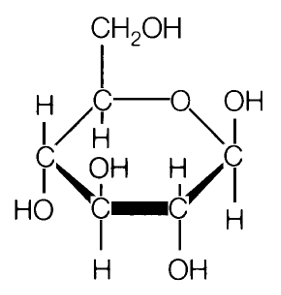
Carbohydrates ARE sugars.
My super tall friend Andreas Eenfeldt M.D., a pro-low carb, high fat diet physician posted the 60 Minutes segment on sugar called Is Sugar Toxic which aired a few weeks ago.
While it was great to see a segment on the evils of sugar aired on such a popular show, sadly, it fell short of hitting the bullseye.
Dr. Sanjay Gupta asks Dr. Robert Lustig in the beginning of the segment “Do you think sugar is toxic?” Dr. Lustig replies “I believe so, yes.” I have a problem with this answer. It’s as though Dr. Lustig wants to take the limelight. Why respond by saying “I believe so?” The question is not asked to learn about Dr. Lustig and his personal beliefs.
It would have been far better and more accurate for him to have said in reponse: “Research seems to indicate that this may very well be true especially if excessive amounts of sugars and carbohydrates are ingested. This leads to chronically elevated blood glucose levels – the real cause of systemic inflammation and several metabolic disorders.”
But truth be told, sugar is not toxic per se. If you eat a grain of sugar is this toxic to your body? Heck no. What is toxic is chronically high levels of blood glucose caused by excessive sugar and carbohydrate intake. Total carbohydrate intake, not sugar itself, is the issue.
60 Minutes did a good job with the segment. They managed to demonize sugar rich foods like syrup, soda, honey (I’m not so convinced a tad of honey is so bad) and Wonder bread. But I think we all know that added sugars and sugary foods are not so good for us. If you polled a thousand people and asked them if Coca Cola, Ring Dings, Wonder Bread, Sno-Balls, Snickers bars, etc. were good or bad, I don’t think a single person would say that any of these foods were good or healthy. In fact, I’d bet my MedX leg press machine that every single one of the people polled would not only say that these foods are bad, but that they are not really food at all.
The info on cancer was tremendous I thought. I’ve been reading a lot on this and the work of Dr. Seyfried and colleagues is pioneering how we treat this dread disease.
All in all I’d say it was a good piece but it missed hitting the bulls-eye which is TOTAL carbohydrate/sugar intake not just the sugar or fructose itself.
Thoughts?











